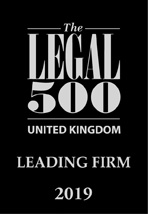Bell Lax pioneered no win no fee arrangements for commercial disputes. If you lose, we lose, therefore we always fight for you.
Bell Lax pioneered no win no fee arrangements for commercial disputes. If you lose, we lose, therefore we always fight for you.
Shareholder Disputes Case Study 4
Bell Lax’s client, a Thai national, had set up a number of Thai restaurants and pubs with his uncle, and with a British couple who they knew.
The agreement between them was that the shareholdings in those companies would be split three ways, between Bell Lax’s client, his uncle, and the husband of the couple. The three men were also to be the directors of the companies. The wife was to be Company Secretary.
The documentation filed at Companies House with regard to the shareholders and directors of the companies was inconsistent across the companies.
Shortly after the companies were set up, our client’s uncle sadly passed away. At one point, when Bell Lax’s client was having immigration difficulties, he was asked by the wife to sign over his shares in one of the companies to the couple.
After a disagreement between them, the Defendants told Bell Lax’s client that they were removing him from the companies. Bell Lax’s client was also having immigration issues at that time, so was particularly vulnerable, and was left homeless for a period after this.
Once his immigration status had been resolved, Bell Lax’s client got in touch with the firm to pursue a claim for his shares in the Company.
The British couple denied that Bell Lax’s client had ever been a director or a shareholder in the companies, and denied that any shares had been held for him on trust.
As they had retained all company documentation, our client was left to prove his case with the very limited documentation he had been able to retain and/or piece together. This meant that Bell Lax had to work with our client to gather and understand the evidence, and to establish what that evidence meant in the context of his potential claim.
After a three day County Court trial, the judge found that a one-third share in each of the companies was held on trust for Bell Lax’s client, and that he was entitled to the value of those shares.







